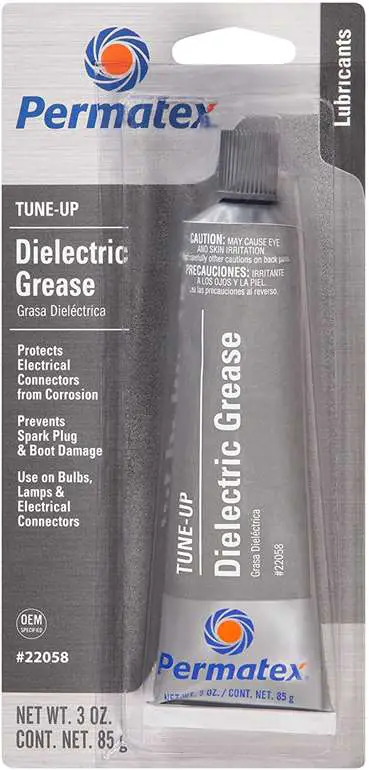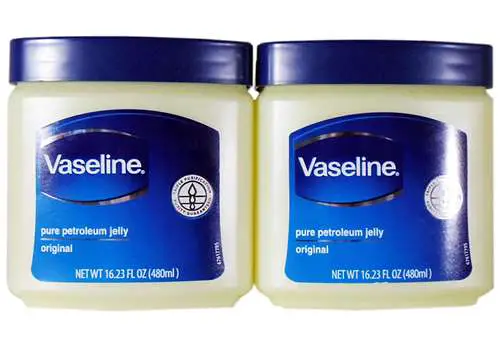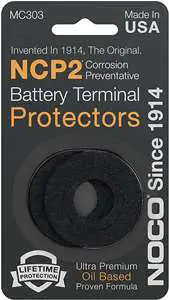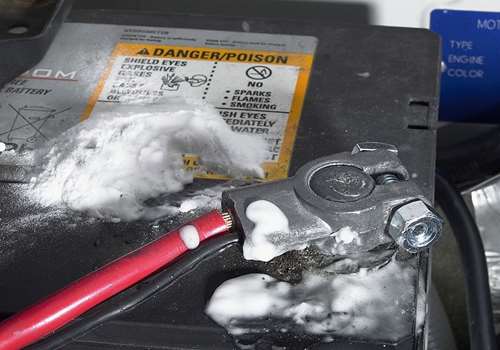
Is Cleaning Battery Terminals Without Disconnecting Safe?
Cleaning battery terminals can be a dull process and can take quite a while. You can use a couple of techniques that will make the process much easier. It would not cost you anything and you would be done in, literally a minute.
Yes, It is totally safe cleaning car battery terminals without disconnecting. To ensure safety, turn off the ignition and spray on the hot water on the terminal, more like a jet spray. The pressure and the temperature of the water will equally contribute to cleaning and removing dirt and deposits on the terminals. If you do not have a spray bottle simply pour the water from some height to make a jet it will work similarly. To make it more thorough, use a wire brush or an old toothbrush and remove the residue. Once it is done, use a dry towel to eliminate moisture and any leftovers. Voila!
How to Clean Car Battery Terminals with Vinegar?
The terminals of car batteries tend to accumulate deposits which hinders the performance of the battery as well as the car. There are various techniques to tackle this problem and keep your car batteries good as new. I often see people trying different acids to clean their battery terminals when they can’t find the terminal cleaners which can be quite hazardous and can ruin the battery’s life.
However, using vinegar is a great DIY way to clean the deposit of the terminals without damaging them as it contains acetic acid which is a weak acid. Here is what you will be needing:
- Wrench
- Baking soda and vinegar
- Dry cloth or towel
- Wire brush or toothbrush
Start by disconnecting the terminals using the wrench, for personal safety. Always disconnect the negative first and then the positive one. To thoroughly clean the terminals, make a concoction of baking soda and vinegar and rub it on the terminals. Brush off the dirt and deposits and clean the terminals with water; dry off with a towel. Reattach the terminals in the opposite sequence (positive first and then negative) and you are done. Going the extra mile to ensure the longevity of the terminals, apply a dialectic grease or petroleum jelly to avoid corrosion.
How to Clean Battery Terminals with Coke?
There are tons of ways to clean a battery with corroded terminals. You can use WD40, hot water, baking soda and vinegar mixture and so much more. However, nothing beats the fun of doing the old Coca Cola trick. It works great and is easily available. For this very DIY project, you will be needing:
- Screwdriver or scrapper
- Wire brush
- A plastic container
- Coca Cola
Start by turning off the ignition and disconnecting the battery terminals. Remove the negative one first. Use a scraper or a screwdriver (if you do not have a scrapper) and scrape off as much of the deposits as you can. Do this for the terminals as well as the rest of the battery’s top. To ensure maximum cleaning, use a wire brush. Now, the part you have been waiting for the most; take a plastic container and pour it in the Coca Cola. Place the terminals in it for at least 5-10 minutes and let it do its magic. After 5 minutes you will notice that the Coca Cola has eaten up the corrosion on most parts of the terminals.
For the top of the battery, directly pour over the coke, let it sit for about 10-15 seconds, and then pour water right over the top of it. Wipe it all off and your battery is good to be placed back in. Rethatch the terminals in the opposite sequence as you removed them; and you are done with it.
Why Do Car Batteries Corrode?
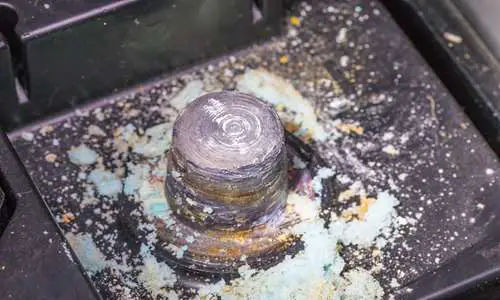
Corrosion of car batteries often result in deposits and can significantly damage the life of the battery. Interestingly, a lot of people worry about the corrosion on car batteries but are quite less familiar with factors including corrosion here is a guide that will help you get a better understanding of corrosion-related to car battery and terminals:
- Loose terminals: Loose terminals do not charge the battery properly and hence battery terminals get corroded.
- Electrolyte overfilling: Electrolyte coming in contact with the terminals causes a corrosive reaction hence, the electrolyte should be filled to a level below that.
- Overcharging: The positive terminal gets corroded in case you overcharge the battery.
- Undercharging: It corrodes the negative terminal quite fast.
- The Hydrogen Gas: It releases from the battery and on coming in contact with the terminals can erode them.
How to Remove Rust from the Battery Contacts?
Battery terminals going through corrosion is quite common. They even rust up due to oxidation caused by the air and moisture. Rusted terminals also hinder the battery-charging process which can lead to even more corrosion. Here is how I get rid of rust on battery terminals:
Begin by removing the terminals; start with the negative one and then go for the positive one. Spray WD40 on each and use a hard bristle brush to remove the rust. The purpose of using WD40 here is to loosen up the rust, dirt, oil, condensation, and flux residue from the terminals. It blasts of any debris accumulation and provides refined results. Once all the rust is removed, reattach the terminals (positive first). What I find the best thing about it is that it is safe to use and is VOC compliant in all 50 states.
Read More About: How to Clean Car Battery Terminals with WD40
Does Battery Corrosion Ruin Electronics?
Corrosion in battery can occur due to various reasons and can be easily identified by looking for a white deposit on the terminals, However, if the corrosion of the battery can ruin the electronics. It depends majorly on the position of the battery whether other parts might get affected or not. If the battery is placed near the electric circuit, there is a chance of it ruining the device due to the release of Hydrogen gas and electrolyte leakage.
How to Clean Battery Corrosion in the Remote Control?
Any place where metal(s) exists goes through corrosion. The intensity of corrosion depends on how much and for how long the metal has been in contact with the air or moisture. To deal with this problem, here is a method that you can use to get rid of battery corrosion in remote control. It is quite similar to the technique used for a car battery; only the scale is reduced. To get to the tough spots you will be needing something as narrow as an ear cleaning stick. Use baking soda and vinegar to make a paste. Apply it gently on the terminals using the cotton stick and rub it softly until they are all clean. Clean the terminals using a piece of paper towel.
How to Stop Battery Corrosion?
Keeping the battery and its terminals corrosion-free is quite essential which is why keeping them clean and free of any accumulation is important. You can use the following to stop the corrosion process:
- Dielectric grease
Permatex 22058 Dielectric Tune-Up Grease is a fine choice. Apply it thoroughly to the terminals to prevent voltage leakage, accumulation of dirt, salt, and other deposit.
- Vaseline or Petroleum Jelly
A great and easy way to avoid corrosion is to use Vaseline Pure Petroleum Jelly which is easily available at home. After cleaning, cover the terminals evenly with a coat of this jelly and it will ensure no moisture, dirt, or salt.
- Battery Anti-corrosion Washers
NOCO NCP2 MC303S Oil-Based Battery Anti-Corrosion Washer has significantly improved the condition of my battery terminals. The gel has a great consistency and does not dry out or evaporate hence, it lasts quite a while. It reduces corrosion up to a great extent and increases the cranking ability resulting in reduced leakage of voltage.

